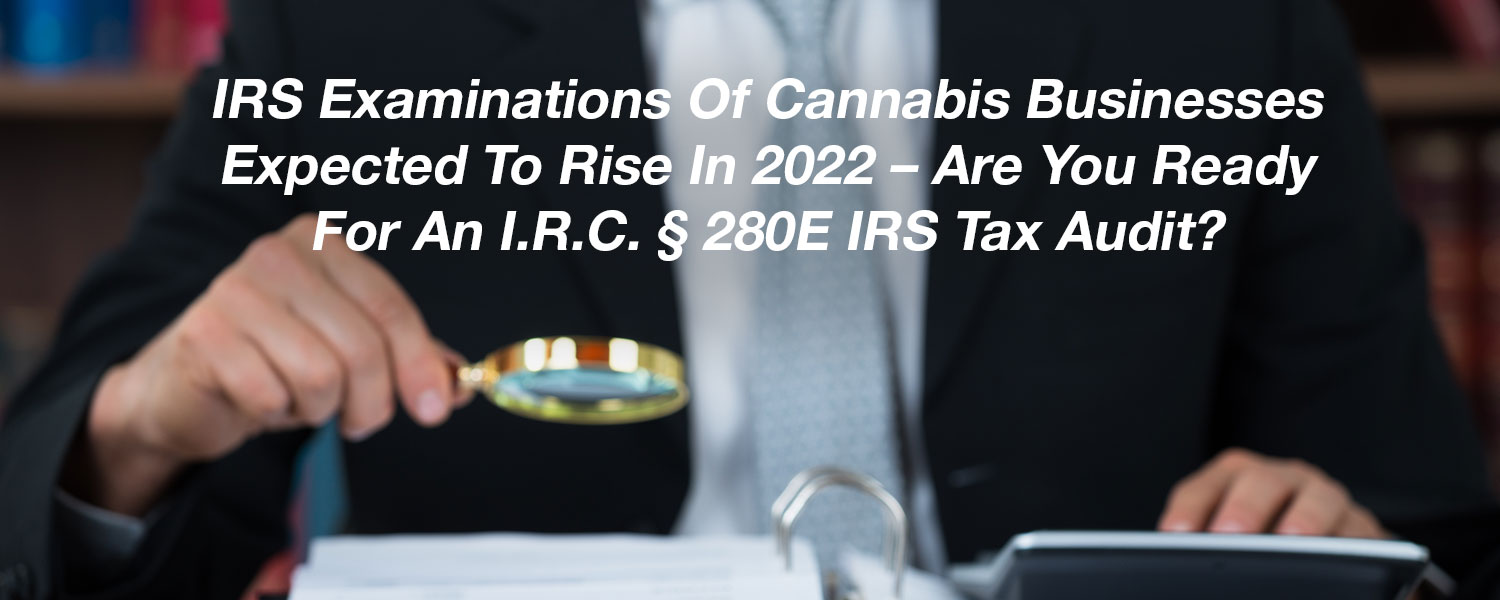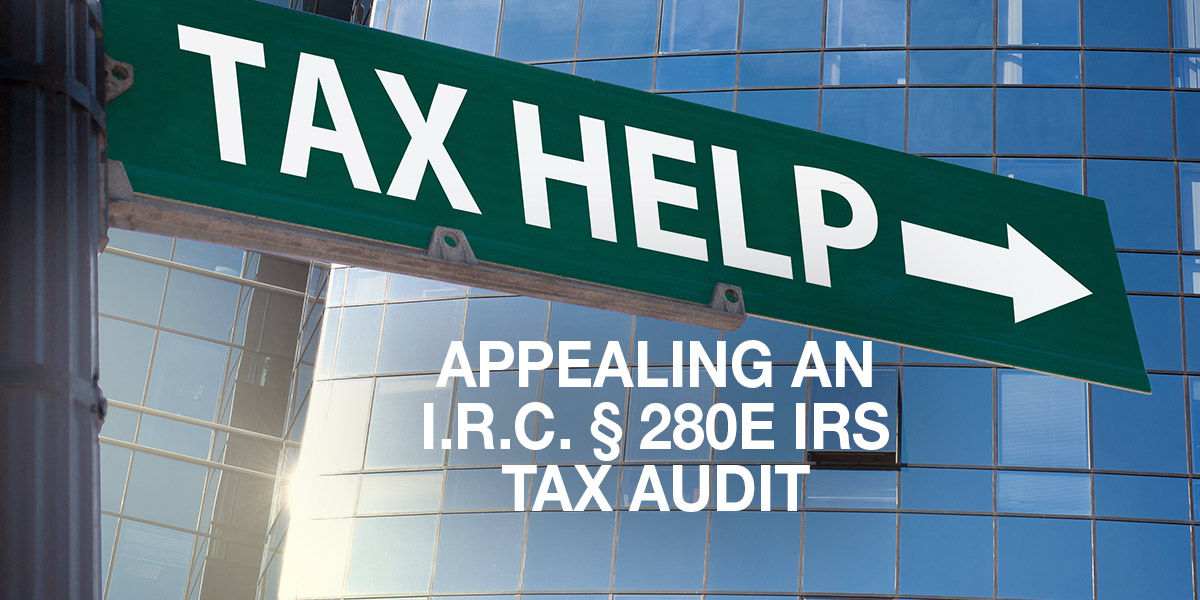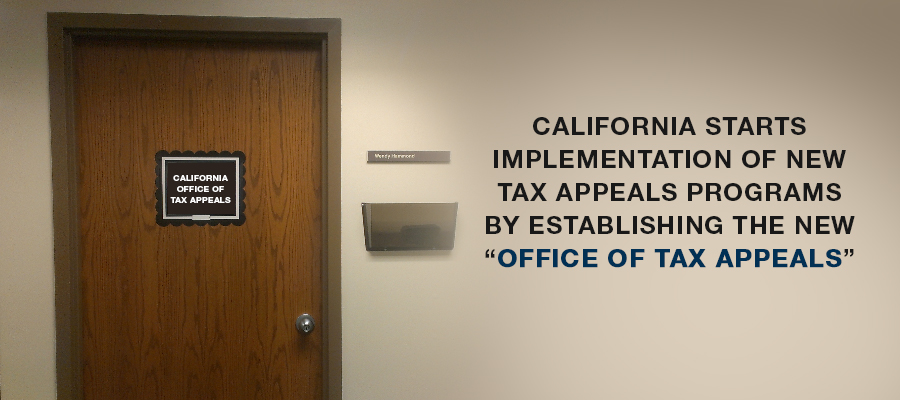IRS Examinations Of Cannabis Businesses Expected To Rise In 2022 – Are You Ready For An I.R.C. § 280E IRS Tax Audit?
While the sale of cannabis is legal in California as well as in a growing number of states, cannabis remains a Schedule 1 narcotic under Federal law, the Controlled Substances Act. As such businesses in the cannabis industry are not treated like ordinary businesses. Despite state laws allowing cannabis, it remains illegal on a federal level but cannabis businesses are obligated to pay federal income tax on income because I.R.C. §61(a) does not differentiate between income derived from legal sources and income derived from illegal sources.
Taxation Of Cannabis Businesses
The Sixteenth Amendment of the U.S. Constitution prohibits the Federal government from taxing “gross receipts”. In Edmondson vs. Commissioner, 42 T.C.M. (CCH) 1533 (T.C. 1981), the Tax Court decided that Jeffrey Edmonson, self-employed in the trade or business of selling amphetamines, cocaine, and cannabis, was permitted to deduct his business expenses resulting from his trade. Discomforted by this outcome, the following year Congress enacted I.R.C. §280E, disallowing all deductions and credits for amounts paid or incurred in the illegal trafficking in drugs listed in the Controlled Substances Act.
Under I.R.C. §280E, taxpayers cannot deduct any amount for a trade or business where the trade or business consists of trafficking in controlled substances…which is prohibited by Federal law. Cannabis, including medical cannabis, is a controlled substance. While I.R.C. §280E disallows cannabis-related businesses to deduct “ordinary and necessary” business expenses, it would be unconstitutional for the IRS to disallow businesses to deduct Cost Of Goods Sold when calculating gross income. This concept was first applied in the Tax Court case of Olive vs. Commissioner Of Internal Revenue, 139 T.C. 19 (2012).
I.R.C. Section 280E IRS Tax Audits
It is no surprise that cannabis businesses are proliferating as more States legalize cannabis and make available licenses to grow, manufacture, distribute and sell cannabis. The IRS recognizes this and it is making these cannabis businesses face Federal income tax audits. IRC §280E is at the forefront of all IRS cannabis tax audits and enforcement of §280E could result in unbearable tax liabilities.
Proving deductions to the IRS is a two-step process:
- First, you must substantiate that you actually paid the expense you are claiming.
- Second, you must prove that an expense is actually tax deductible.
Step One: Incurred And Paid The Expense.
For example, if you claim a $5,000 purchase expense from a cannabis distributor, offering a copy of a bill or an invoice from the distributor (if one is even provided) is not enough. It only proves that you owe the money, not that you actually made good on paying the bill. The IRS accepts canceled checks, bank statements and credit card statements as proof of payment. But when such bills are paid in cash as it typical in a cannabis business, you would not have any of these supporting documents but the IRS may accept the equivalent in electronic form.
Step Two: Deductibility Of The Expense.
Next you must prove that an expense is actually tax deductible. For a cannabis businesses this is challenging because of the I.R.C. §280E limitation; however a cannabis business can still deduct its Cost Of Goods Sold (“COGS”). Cost of goods sold are the direct costs attributable to the production of goods. For a cannabis reseller this includes the cost of cannabis itself and transportation used in acquiring cannabis. To the extent greater costs of doing business can be legitimately included in COGS that will that result in lower taxable income. You can be sure the IRS agents in audits will be looking closely at what is included in COGS.
Appealing An I.R.C. Section 280E IRS Tax Audit
Now if your cannabis IRS tax audit is not resolved, the results may be challenged. After the Revenue Agent has concluded the tax examination, the agent will issue a copy of the examination report explaining the agent’s proposed changes along with notice of your appeals rights. Pay attention to the type of letter that is included as it will dictate the appeals process available to you.
The “30-day letter”
The “30-day letter” gives you the right to challenge the proposed adjustment in the IRS Office Of Appeals. To do this, you need to file a Tax Protest within 30 days of the date of the notice. The Appeals Office is the only level of appeal within the IRS and is separate from and independent of the IRS office taking the action you disagree with. Conferences with Appeals Office personnel are held in an informal manner by correspondence, by telephone, or at a personal conference.
The “Notice Of Deficiency”
If the IRS does not adopt your position, it will send a notice proposing a tax adjustment (known as a statutory notice of deficiency). The statutory notice of deficiency gives you the right to challenge the proposed adjustment in the United States Tax Court before paying it. To do this, you need to file a petition within 90 days of the date of the notice (150 days if the notice is addressed to you outside the United States). If you filed your petition on time, the court will eventually schedule your case for trial at the designation place of trial you set forth in your petition. Prior to trial you should have the opportunity to seek a settlement with IRS Area Counsel and in certain cases, such settlement negotiations could be delegated to the IRS Office Of Appeals. If there is still disagreement and the case does go to trial, you will have the opportunity to present your case before a Tax Court judge. The judge after hearing your case and reviewing the record and any post-trial briefs will render a decision in the form of an Opinion. It could take as much as two years after trial before an Opinion issued. If the Opinion is not appealed to a Circuit Court Of Appeals, then the proposed deficiency under the Opinion is final and your account will be sent to IRS Collections.
IRS Area Counsel are experienced trial attorneys working for the IRS whose job is to litigate cases in the U.S. Tax Court and look out for the best interests of the Federal government. So to level the playing field, it would be prudent for a taxpayer to hire qualified tax counsel as soon as possible to seek a mutually acceptable resolution without the need for trial, and if that does not happen, to already have the legal expertise in place to vigorously defend you at trial.
What Should You Do?
While more States are legalizing cannabis, risks to the cannabis industry still exist. Considering the risks of cannabis you need to protect yourself and your investment. Level the playing field and gain the upper hand by engaging the cannabis tax attorneys at the Law Offices Of Jeffrey B. Kahn, P.C. located in Orange County (Irvine), the Inland Empire (including Ontario and Palm Springs) and other California locations. We can come up with solutions and strategies to these risks and protect you and your business to maximize your net profits. And if you are involved in crypto currency, check out what a bitcoin tax attorney can do for you.






 Follow
Follow Follow
Follow